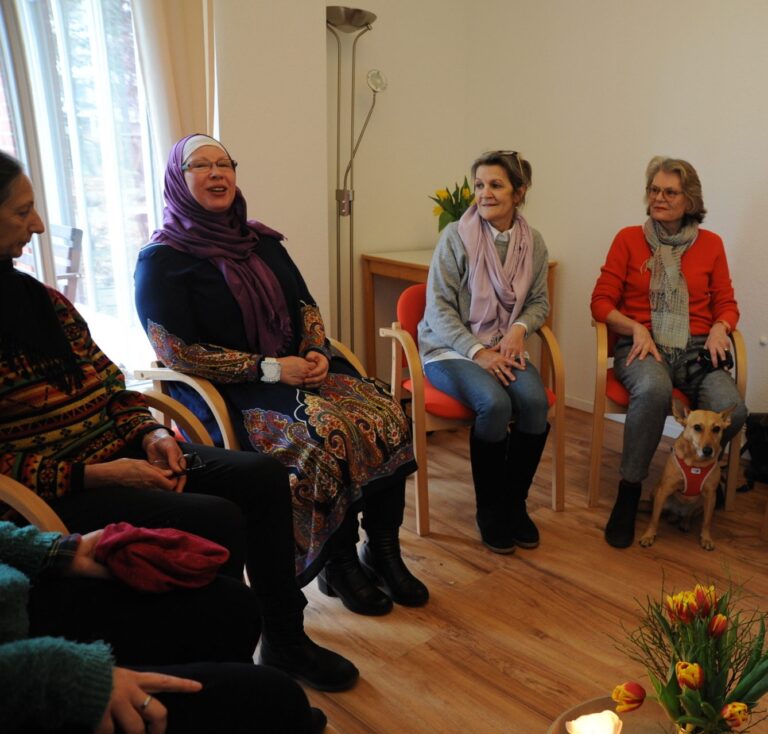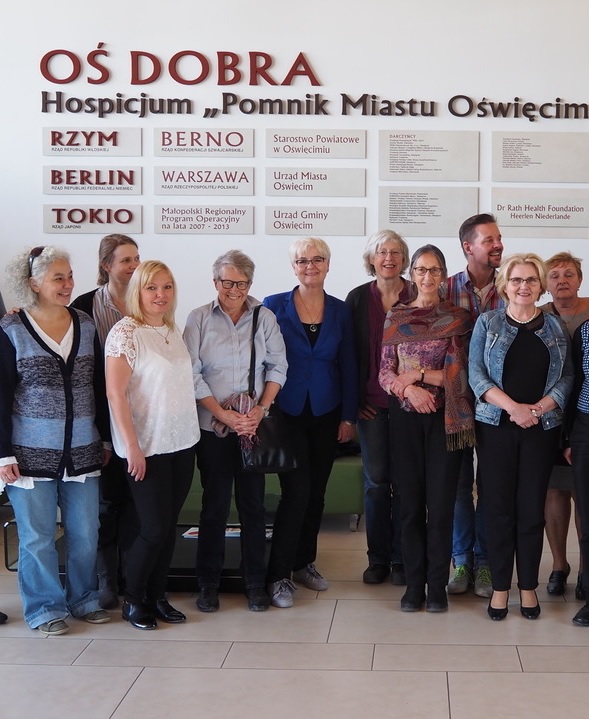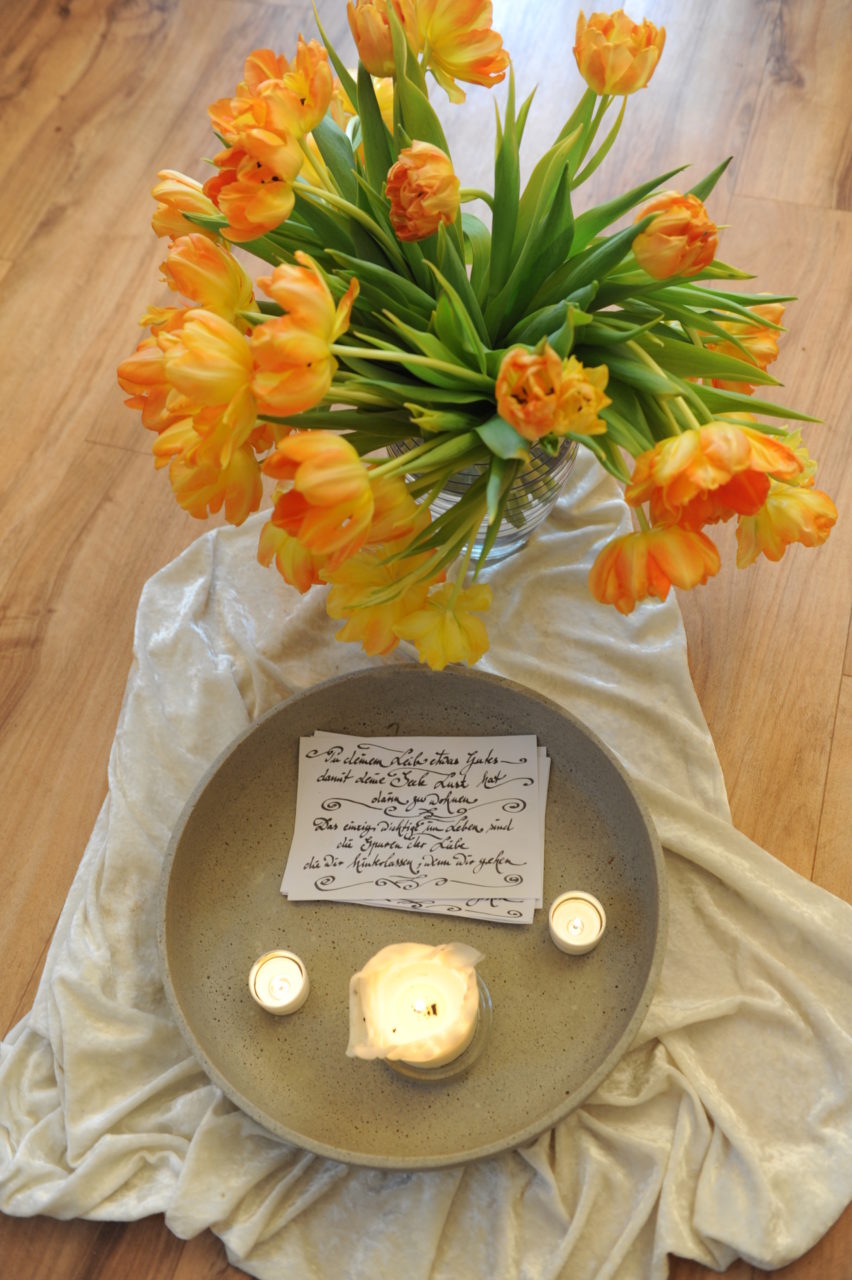Culturally sensitive end-of-life care
Cooperation with the Memorial Hospice in Oświęcim
The collaboration between the Polish Memorial Hospice in Oświęcim Poland and the German Lazarus Hospice in Berlin
On the 27th of January 1945 the inmates who had survived the Auschwitz concentration camp were set free by the Russian army. Today, the 27th of January is an international day of remembrance. It commemorates the exclusion, deprivation of rights and murder of Jewish, Roma and Sinti, homosexuals and political prisoners as well as the forced laborers and Poles. As expressed by Federal President Gauck, on the 27th of January 2015 in the remembrance hour of the German Bundestag, Auschwitz is a part of our German history and our identity.
In 2013, the Federal Ministry of Health set up an alliance between the Lazarus Hospice Berlin, the Berlin Wall Memorial and the Memorial-Hospice, recently established in 2012, in the town of Oświęcim.
Hospice Educates
We offer a project week developed for children in grade 3 and 4 at elementary school on the following topics:
- Becoming and passing away
- Illness
- Dying and death
- Grieving and grief counseling
- Consolation and comforting
Most children go through their first experiences of loss early, with the pain of saying good-bye and also with dying and death, for example with pets or grandparents.
In the project week “Hospice Educates” they will be gently introduced to these topics. In the care of dying people and their family we often find that parents try to protect children from these subjects. Adults often feel helpless when they are expected to answer direct questions from their children. And so children are excluded from discussions and are left frequently with unresolved questions and uncertainty.
The aim is to introduce the subjects of dying, death and grieving in a gentle way oriented in their own experience so as to understand death and dying as a part of life.











